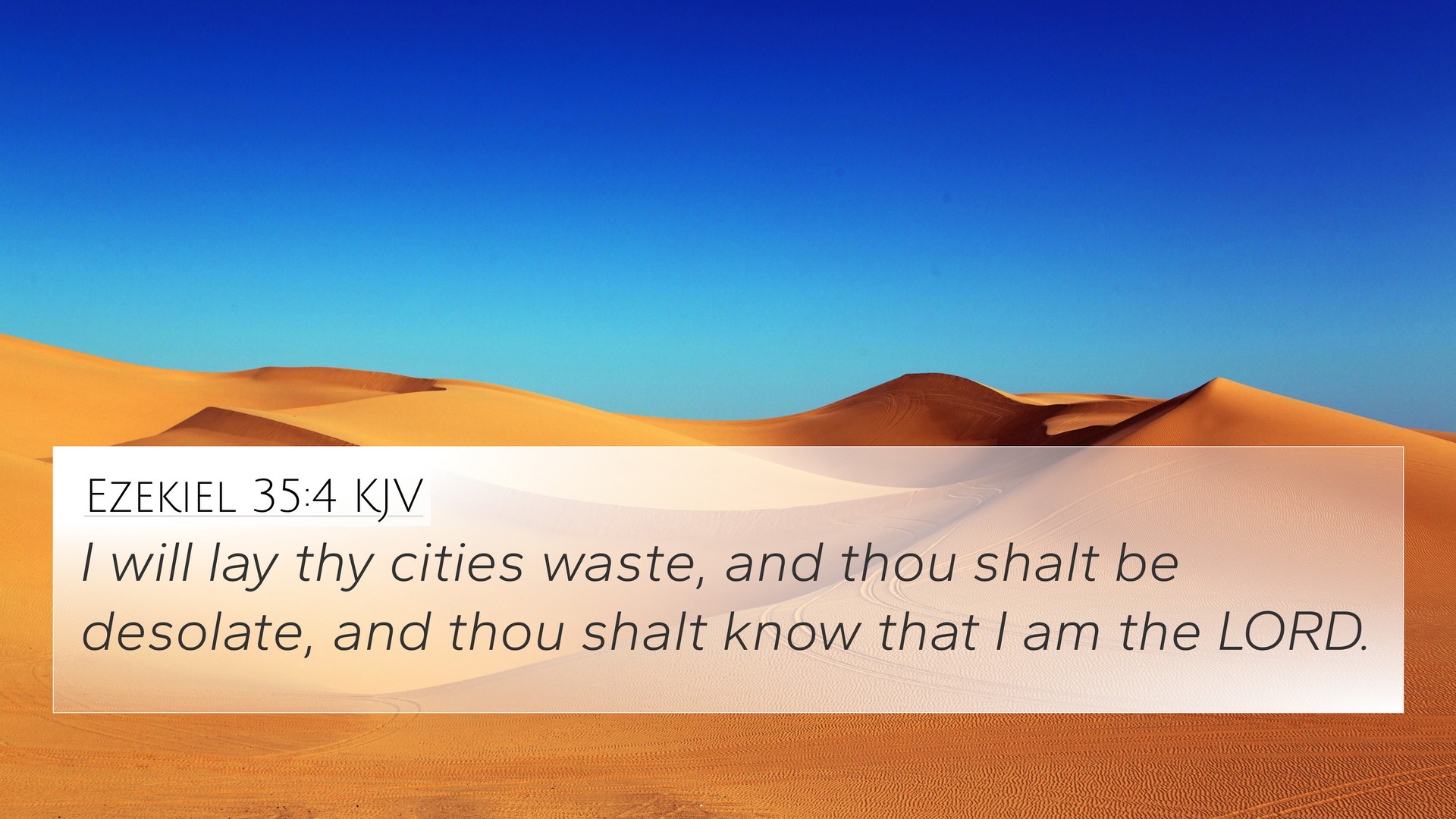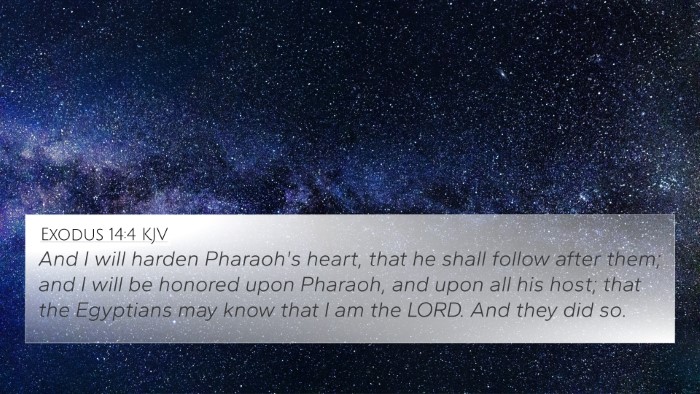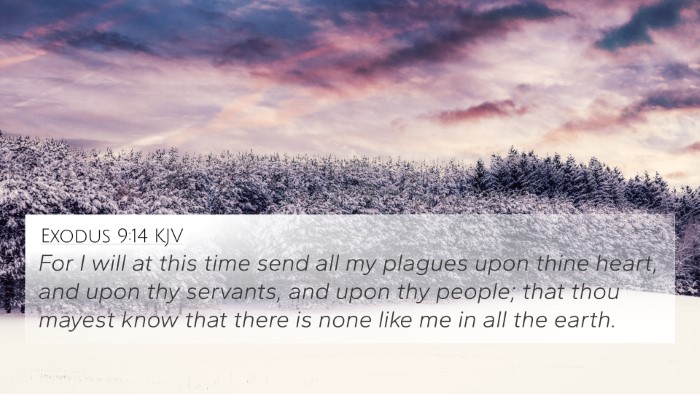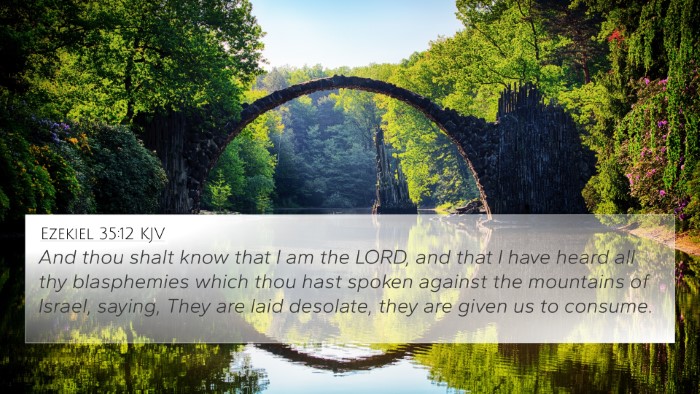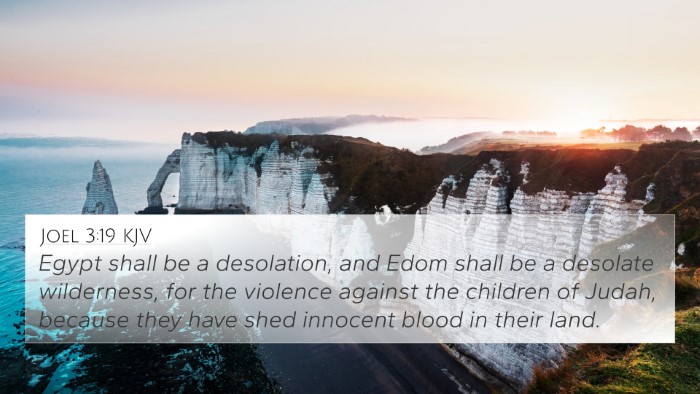Ezekiel 35:4 - Verse Meaning and Interpretation
Verse: Ezekiel 35:4 states, "I will lay thy cities waste, and thou shalt be desolate, and thou shalt know that I am the Lord."
This verse speaks to the prophetic judgment against Mount Seir, representing the Edomites. Through a careful examination of this text, we can draw insights from various public domain commentaries, revealing deeper meanings and connections within the scripture.
Summary of Key Insights
The verse emphasizes God's sovereignty and the certainty of His judgment. The desolation of the cities signifies that God's judgments serve as both punishment for sin and a means to demonstrate His power.
- Matthew Henry: He notes how divine justice is executed against nations that oppose God’s covenant people. Henry highlights the intention behind such judgment is to lead others to acknowledge God's authority.
- Albert Barnes: His commentary focuses on the concept of desolation and how it reflects God's control over nations. He draws attention to the purpose of divine judgments—causing people to recognize who God truly is.
- Adam Clarke: Clarke discusses the emotional impact of desolation, describing it as a state that brings individuals or nations to a point of humility before God. He stresses that such devastation would serve as a reminder of God’s ultimate power.
Cross-References for Deeper Understanding
This verse can be connected with several other biblical passages, enhancing our understanding through thematic Bible verse connections:
- Isaiah 34:11: Speaks about desolation and the vengeance of the Lord.
- Jeremiah 49:16: Describes the pride of Edom and its eventual fall.
- Obadiah 1:10: Declares the violence against Jacob will result in destruction.
- Ezekiel 30:3: Emphasizes the day of the Lord as a time of judgment for nations.
- Malachi 1:4: Refers to Edom's devastated land as a manifestation of God’s judgment.
- Isaiah 63:1-6: Illustrates God's vengeance and the redemption aspect for His people.
- Psalm 34:21: Declares the fate of the wicked, reinforcing the theme of divine justice.
Understanding the Context
The historical context of Ezekiel 35:4 involves the relationship between Israel and Edom, with Edom’s antagonism toward Israel showcasing a broader theme of God's judgment against nations that oppose His will. The desolation and waste of cities can be interpreted both literally and metaphorically, relating to the spiritual desolation that occurs when a nation turns away from God.
Thematic Connections
Exploring the connections between Bible verses reveals a pattern of God’s judgment working in tandem with His mercy. The destruction warned of through Ezekiel serves as a backdrop against which God’s continual offer of repentance stands. This duality can also reflect on the New Testament themes of redemption and grace.
Conclusion
In conclusion, Ezekiel 35:4 serves as a powerful reminder of God’s sovereignty over nations and the call for recognition of His supremacy. By cross-referencing with other scripture passages, we gain a holistic view of God's character and the implications of His judgments. This prophetic declaration serves as both a warning and a lesson in humility for nations and individuals alike.
Related Keywords for Study and Reflection
Utilizing tools for Bible cross-referencing enhances the understanding of biblical texts. When studying passages like Ezekiel 35:4, consider reflections on:
- How to use Bible cross-references effectively
- The importance of a Bible concordance in finding connections
- Identifying themes through a detailed cross-reference system
- Guided Bible cross-reference materials available for deeper insight
